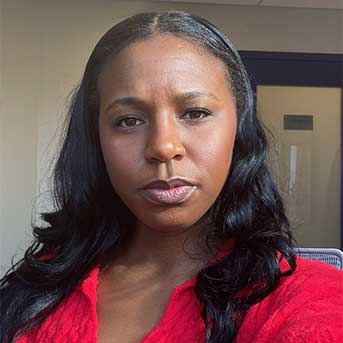
Substance abuse relapses don’t happen in an instant. Triggers and cravings can build up over time, often before people in recovery realize that it’s happening.
Being aware of triggers and cravings, and realizing that they are a normal part of the recovery process and don’t last forever, can help people avoid an addiction relapse.
Although relapsing can take a toll on the person, it is not a sign of failure. Instead, it means the prevention plan and coping strategies must be adjusted to prevent further issues.
How Long Does A Drug Craving Typically Last?
The most intense drug cravings typically only last about 30 minutes, although this can vary somewhat from person to person.
Physical Cravings Vs. Mental Cravings
Physical cravings are cravings that affect a person’s body, while mental cravings involve thoughts of substance use.
People may experience strong physical cravings for substances like opioids, alcohol, or stimulants, while drugs like psychedelics or marijuana often result in more psychological cravings.
Physical cravings are challenging to handle in the moment. These are typically at their strongest during or immediately following detox, when the body may still be dependent on a drug.
Psychological cravings tend to be longer-lasting. People may continue thinking about using drugs or alcohol months or even years after achieving sobriety.
How Long Do Relapse Triggers Last?
There is no specific amount of time that a specific relapse trigger may last. Some people experience them years into recovery, but they are often strongest during the withdrawal period.
Triggers may be particularly challenging for people who are frequently exposed to unhealthy situations or relationships when triggers are more common.
Mild Triggers
Mild triggers may result from things like HALT (hungry, angry, lonely, tired), stress, a flare-up in mental or physical health issues, holiday celebrations, or even a simple bad day.
These triggers are typically the easiest to mitigate. They often only last for a few minutes to an hour and can often be overcome by turning to a support system or engaging in self-care.
Moderate Triggers
Moderate triggers often derive from more difficult situations, including chronic periods of stress or anxiety, extended boredom, loneliness, financial problems, or relationship conflicts.
When people are battling with ongoing issues, triggers can last longer or be more severe. For example, someone dealing with a stressful job may experience triggers to drink every time they work.
Severe Triggers
Severe drug triggers can happen during the most intense periods of initial withdrawal and treatment when the body is still physically dependent on a substance.
They can also occur due to challenging symptoms of mental or physical illnesses, harmful relationships, or being in situations and places where prior substance abuse occurred.
How long a severe trigger lasts will vary widely from person to person. It may pass quickly or be an ongoing struggle depending on what caused it.
Factors That Affect How Long Cravings And Triggers Last
Triggers and cravings happen to everyone in recovery, but people react to them in different ways based on a few key factors.
People who have strong social support or regularly attend individual or group therapy and are dedicated to staying sober are more likely to overcome cravings and triggers quickly.
Having a plan in place to distract yourself when these situations come up can make a big difference. You can try meditation, talking to a supportive family member, or engaging in a hobby.
It’s also vital to practice self-care habits. People who neglect their emotional and physical health are more likely to give in to cravings quickly when compared to people who exercise or eat well.
How Long Do The Stages Of Relapse Last?
Understanding the different stages of a relapse is crucial to preventing relapse from happening. If a potential relapse is caught in the early stages, it is much easier to treat.
There are three main stages of relapse: emotional, mental, and physical. Relapse is a gradual process, and these stages may develop over weeks or months.
Emotional Relapse
In the emotional relapse stage, people first begin experiencing internal triggers or stressors that may create cravings for substances.
They aren’t actively considering using substances in this stage, but they may begin neglecting their health or drug addiction treatment plan.
This stage can last for days, weeks, or even months as a person’s self-care routines and addiction treatments slowly begin to erode.
Mental Relapse
During a mental relapse, people begin considering using drugs or alcohol. They may try to justify it or convince themselves they can use a substance “just once.”
People may start to experience depression, anxiety, insomnia, or other symptoms of worsening mental health in this stage.
Substances that were once used as a coping mechanism start to look increasingly more appealing, and people may also make a plan for how to acquire them.
Much like with emotional relapse, the mental relapse stage doesn’t usually happen overnight. It can worsen with time as people lose faith in their recovery.
Physical Relapse
If left to progress, an emotional relapse can lead to a physical relapse, which is when alcohol or drug use takes place. The person may stop after one use, which is considered a “lapse.”
A full relapse is when a person returns to the same level of substance use as before they began treatment.
A physical relapse may last for just a few days or weeks, or it can stretch out into months and years if left untreated.
Warning Signs Of A Relapse
If you are concerned that you or a loved one may be at risk of a relapse, there are a few key signs you can watch for.
Warning signs of an impending relapse include:
- sudden changes in behavior
- withdrawing from loved ones
- glamorizing past substance abuse
- increased negative emotions or mood swings
- increased symptoms from mental health issues
- overconfidence in recovery
- spending time with people they used to do drugs with
- loss of interest in addiction treatment programs
- abandoning self-care or healthy habits
- experiencing stressful situations
What To Do After Relapsing
If you do relapse, don’t panic. Return to your addiction treatment center, resume outpatient or aftercare services, or attend a group meeting as soon as possible.
Focusing on why you wanted to get sober in the first place is a common first step in overcoming a relapse. You can learn from the relapse to prevent another one in the future.
If someone close to you relapses, be sure to provide encouragement to help them get back into treatment. It’s also crucial to avoid getting angry and instead focus on offering support.
Finally, understand that slip-ups happen. Being patient with yourself or your loved one will yield far better results than falling into old patterns of shame or defeat.
Get Help For A Substance Use Disorder Today
If you or a loved one is facing drug or alcohol addiction, don’t wait to find help. Reach out to AddictionResource.net to learn about the recovery journey.
Addiction Resource aims to provide only the most current, accurate information in regards to addiction and addiction treatment, which means we only reference the most credible sources available.
These include peer-reviewed journals, government entities and academic institutions, and leaders in addiction healthcare and advocacy. Learn more about how we safeguard our content by viewing our editorial policy.
- Alcohol and Drug Foundation – Relapse
https://adf.org.au/reducing-risk/relapse/ - National Library of Medicine – Relapse Prevention and the Five Rules of Recovery
https://www.ncbi.nlm.nih.gov/pmc/articles/PMC4553654/ - VeryWell Mind – Warning Signs of an Alcohol or Drug Relapse
https://www.verywellmind.com/warning-signs-of-an-alcohol-or-drug-relapse-67895

